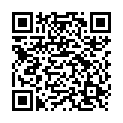|
|
|
| Module code: KI320 |
|
|
2V+2P (4 hours per week) |
|
4 |
| Semester: 3 |
| Mandatory course: yes |
Language of instruction:
German |
Assessment:
Ninety-minute written exam
[updated 20.03.2007]
|
KI320 (P222-0037) Computer Science and Communication Systems, Bachelor, ASPO 01.10.2014
, semester 3, mandatory course
|
60 class hours (= 45 clock hours) over a 15-week period.
The total student study time is 120 hours (equivalent to 4 ECTS credits).
There are therefore 75 hours available for class preparation and follow-up work and exam preparation.
|
Recommended prerequisites (modules):
KI200 Programming 2
KI210 Informatics 2
[updated 04.07.2009]
|
Recommended as prerequisite for:
KI410 Distributed Systems 1
KI430 System Management and Security
KI500 Internet Technologies
KI590 Work Experience Phase
KI612 Broadband Technology and its Applications
KI616 Information Security
KI632 Introduction to Wireless LANs
KI633 IT Security Project
KI642 Database Management
KI680 Ruby on Rails
[updated 30.03.2020]
|
Module coordinator:
Prof. Dr. Damian Weber |
Lecturer:
Prof. Dr. Damian Weber
Dipl.-Ing. Wolfgang Pauly
[updated 01.04.2003]
|
Learning outcomes:
Students will learn how the internet functions by analysing the protocol families used between the LAN and the application level. After completing this course, students will be able to implement reliable client/server programs.
[updated 13.03.2007]
|
Module content:
1. Computer communication
1.1. Models
1.2. LAN
1.3. IP
1.4. UDP
1.5. TCP
2. Client/server programming
3. Application level internet protocols
[updated 13.03.2007]
|
Recommended or required reading:
PETERSON/DAVIE, Computernetze, dpunkt Verlag
COMER D., Computernetzwerke und Internets, Prentice Hall
RIGGERT W., Rechnernetze, Carl Hanser
[updated 13.03.2007]
|
Module offered in:
WS 2017/18,
WS 2016/17,
WS 2015/16,
WS 2014/15,
WS 2013/14,
...
|


